The CMP Review — Week of December 23
December 23, 2024

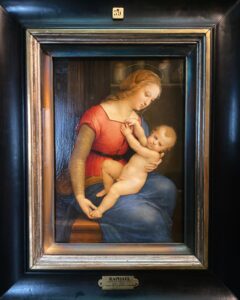
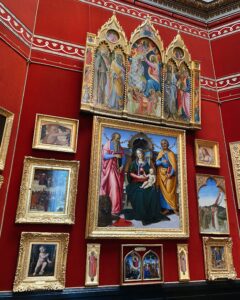
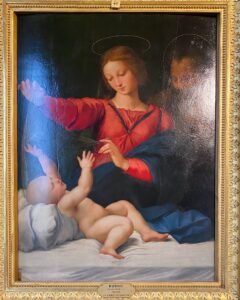
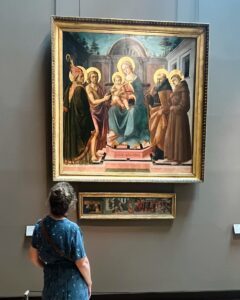
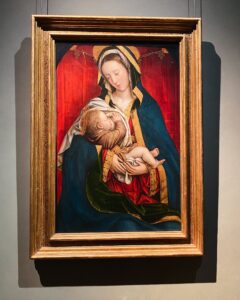
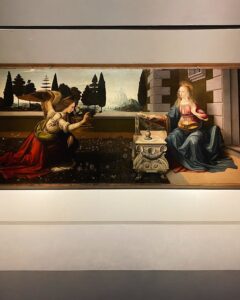
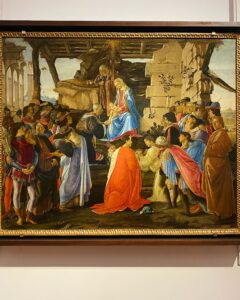
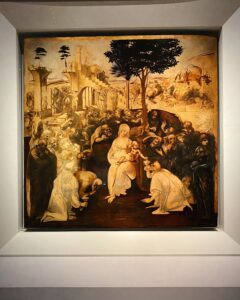
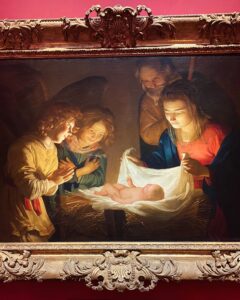
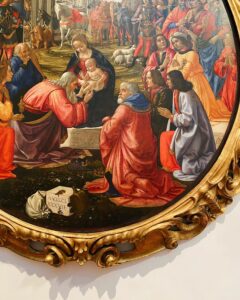
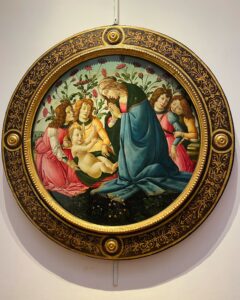
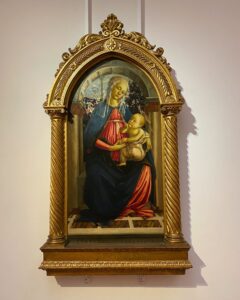
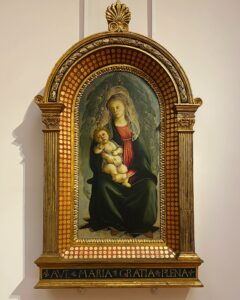
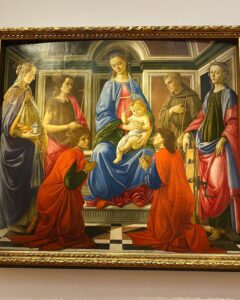
“We have probably all heard the story of the belated shopper who was informed by the shop assistant, ‘There are no Christmas cards left, only Nativity scenes’. That this astonishing remark is not apocryphal is witnessed by another incident which has lately been in the news. It was proposed that a Crib should be set up under the Christmas Tree outside Belfast City Hall this year: the Crib has been vetoed in favour of a scene from Red Riding Hood. It is a sorrowful century in which a so-called Christian country rejects the Christmas gift and retains only the wrapping, and the only comment which meets so contradictory a situation is the remark made by Napoleon on his death-bed, ‘Stupidity fatigues me’.
“Fortunately we need not stop short at fatigue: whatever our religious denomination we know that Christmas without Christ is unthinkable and we can all, whatever our age and wherever we live, do something to ensure that the Christ Child is not excluded from His own Birthday Party.
“… Well, as Dickens himself pointed out, ‘It is good to be children sometimes, and never better than at Christmas, when its mighty Founder was a Child himself’, and we can all chime in with the carols and we all claim the privilege of taking part in the crusade of giving children all over the world the Christmas Crib that their parents may have overlooked.” (Anne Jerningham, PR 70, 1959)
@tessakeath
December 24, 2024
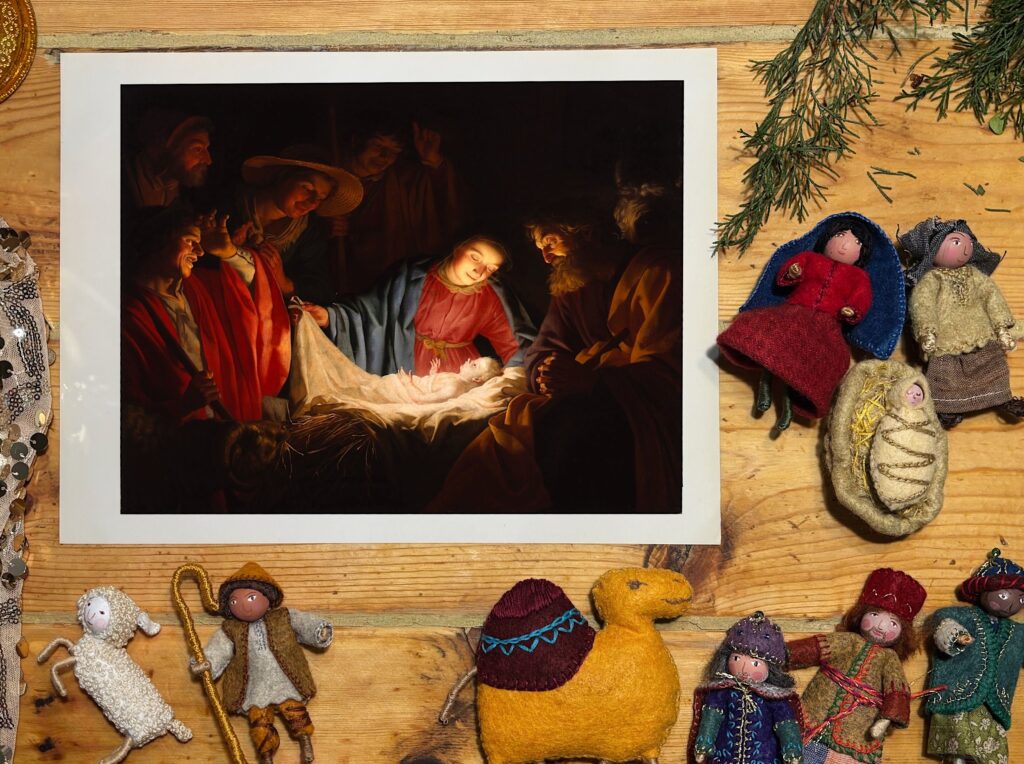
“One of their chief objections to the Christian religion is that it is mysterious,” wrote Rev. Francis Lewis. “They lose patience with it. Everything, they think, in religion ought to be clear, plain and straight-forward.”
No time of year is this more apparent than Christmas. God is infinite. Man is finite. God is perfect. Man is fallible. God is strong. Man is weak. God is One. Man is many. And yet this week we face an unfathomable mystery: God became man.
Lewis’s 1920 sermon follows the thread of mystery which sheds light even on education. “Suffer the little children to come unto Me and forbid them not,” said Jesus, “for of such is the kingdom of heaven.” Read or listen to Lewis’s sermon here.
@artmiddlekauff
December 25, 2024

Wishing you a most joyous Christmas from Charlotte Mason Poetry!
December 26, 2024
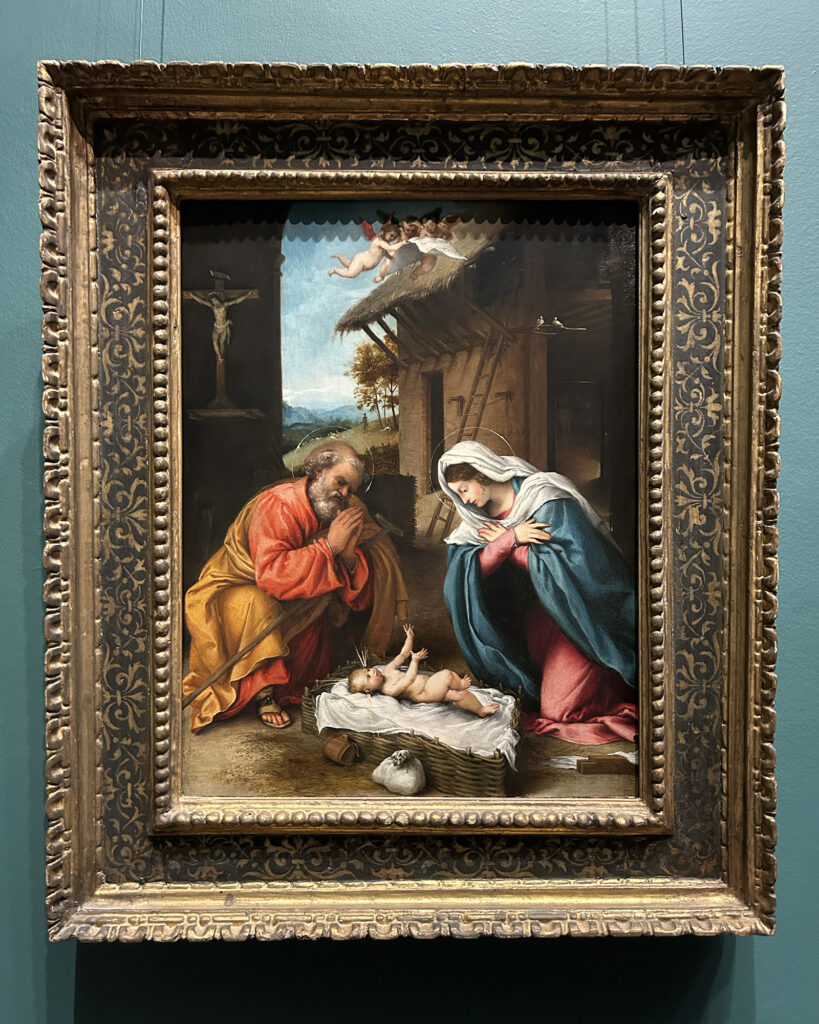
“Christmas inspired Frances, motivated her, and kept her from depression during the winter,” wrote Nancy Carpentier Brown about G. K. Chesterton’s wife. “The Infant in the Manger was her heart’s desire, and she loved to describe His tiny feet, little hands, and small footsteps.”
When N. C. Brown prepared her book on the writings of Frances Chesterton, she began with an essay written by Frances that first appeared in the Parents’ Review. “The essay was written before her marriage and sounds strikingly similar to G.K. Chesterton, so much so that one wonders if he inspired her words, or if she inspired his. In any case, we can see how they thought alike.”
Frances served as the Organising Secretary of the PNEU from 1896 to 1901. After her marriage to Gilbert Keith, she continued to make contributions to the Parents’ Review. She expressed her devotion to Christmas year after year in original poems presented in Charlotte Mason’s inimitable journal.
In December of 1918, Frances’s latest Christmas poem filled the second page of the Parents’ Review. Entitled “Seen and Unseen,” the poem painted a vivid picture of a conversation between Mary and Joseph as they gazed upon their newborn child. Today we share this poem for your inspiration this Christmastide. Find it at here.
@artmiddlekauff
December 27, 2024
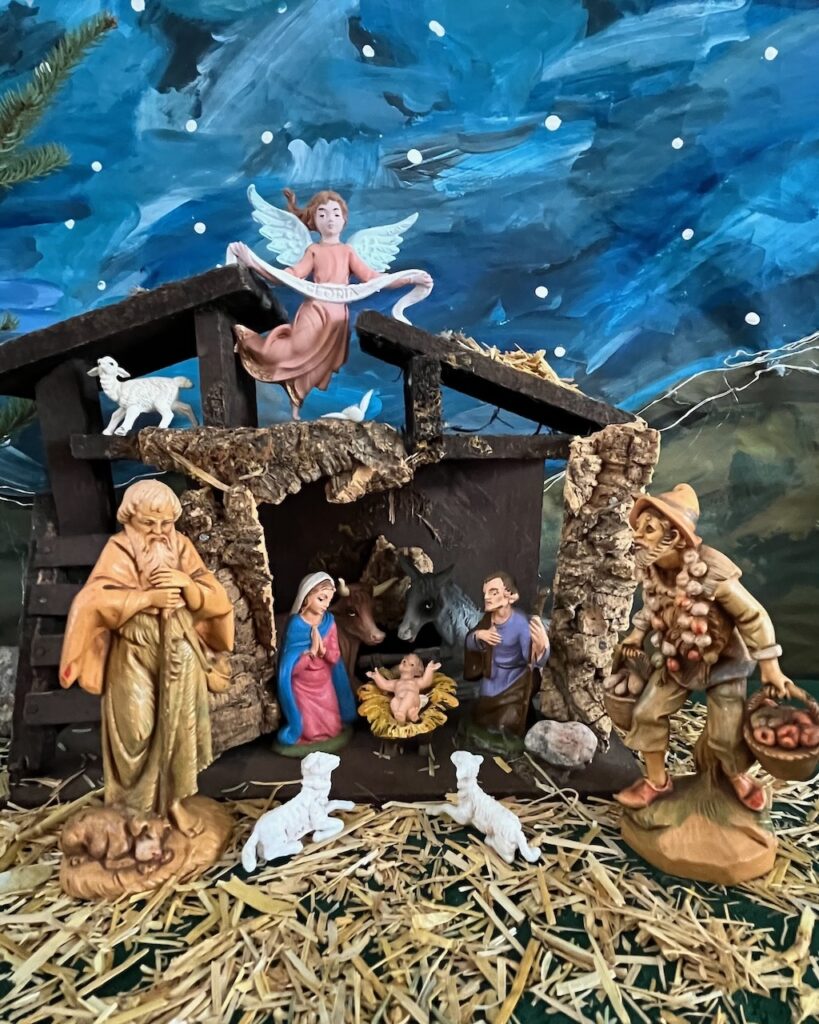
Noel
Grim was the world and grey last night;
The moon and stars were fled,
The hall was dark without song or light.
The fires were fallen dead.
The wind in the trees was like to the sea,
And over the mountains’ teeth
It whispered bitter cold and free,
As a sword leapt from its sheath.
The lord of snows upreared his head;
His mantle long and pale
Upon the bitter blast was spread
And hung o’er hill and dale.
The world was blind, the boughs were bent,
All ways and paths were wild:
Then the veil of cloud apart was rent,
And here was born a Child.
The ancient dome of heaven sheer
Was pricked with distant light;
A star came shining white and clear
Alone above the night.
In that dale of dark in that hour of birth
One voice on a sudden sang:
Then all the bells in Heaven and Earth
Together at midnight rang.
Mary sang in the world below:
They heard her song arise
O’er mist and over mountain snow
To the walls of Paradise,
And the tongue of many bells was stirred
In Heaven’s towers to ring
When the voice of mortal maid was heard,
That was mother of Heaven’s King.
Glad is the world and fair this night
With stars about its head,
And the hall is filled with laughter and light,
And fires are burning red.
The bells of Paradise now ring
With bells of Christendom,
And Gloria, Gloria we will sing
That God on earth is come.
J.R.R. Tolkien. (published in 1936 in the Annual of Our Lady’s School, Abingdon.)
@antonella.f.greco
December 28, 2024

The week between Christmas and New Year’s, with its unstructured days and dreamlike quality, can feel at times like wandering into Narnia—where time seems to pause and ordinary rules don’t quite apply. I used to pull away from it, dreading the “what day is it?” and “shouldn’t we be doing something?” moments. But over the past few years, I’ve started leaning into this in-between time. It’s become a season for lingering: being creative, reading, or just hanging out together. Simply being.
Before we know it, this magical, untethered week will be gone, and we’ll find ourselves back in the rhythm of structure and schedules. But for now, I’m savoring the pause.
@tessakeath
December 29, 2024
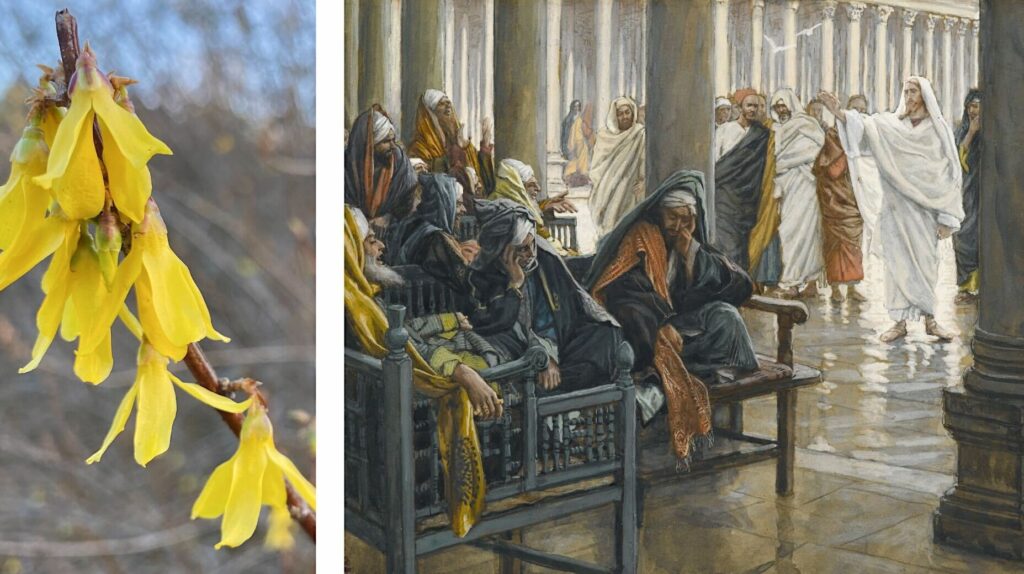
The richness of Bible lessons with Charlotte Mason’s The Saviour of the World poetry volumes eluded me until I read a Parents’ Review article by House of Education graduate Eleanor M. Frost. Then all the pieces fell into place. Writing in 1913, Miss Frost explained:
The New Testament work was the chronological study of part of Christ’s earthly Ministry, and this was taken from The Gospel History, with the corresponding notes from each Gospel in the ‘Commentary.’ For instance, suppose the lesson to be on the healing of Peter’s Wife’s Mother; the pupils would read the story in The Gospel History, then compare the accounts of this miracle in St. Matthew, St. Mark, and St. Luke, using the Notes in [J. R. Dummelow’s] The One Volume Commentary, next they would read the corresponding poem in Volume II. of The Saviour of the World. Studying the Gospel stories thus, the pupils get the four points of view about Our Lord and also the illustrative poems which help them to think and feel.
Thus a full lesson combines a “synthetic” study facilitated by The Gospel History and The Saviour of the World with an “analytic” study facilitated by the Dummelow commentary. It is a powerful learning experience.
Preparing such a lesson, however, takes time. It can be difficult to find the appropriate passages in the Dummelow commentary. So the Charlotte Mason Poetry team has decided to help. Starting today, our weekly poem from Miss Mason also includes the relevant commentary from Dummelow.
Now in one place you can find everything you need: the Gospel History reading, the commentary, the poem, and a beautiful audio recording of the poem. We hope it helps you unlock the depth of these Bible lessons with your children.
But here’s the biggest secret of all: it’s not just for your children. Why not begin your own personal study of the Gospels with Miss Mason? With insights from Dummelow, a synthetic and analytic study might just change your life. Find it here.
@artmiddlekauff